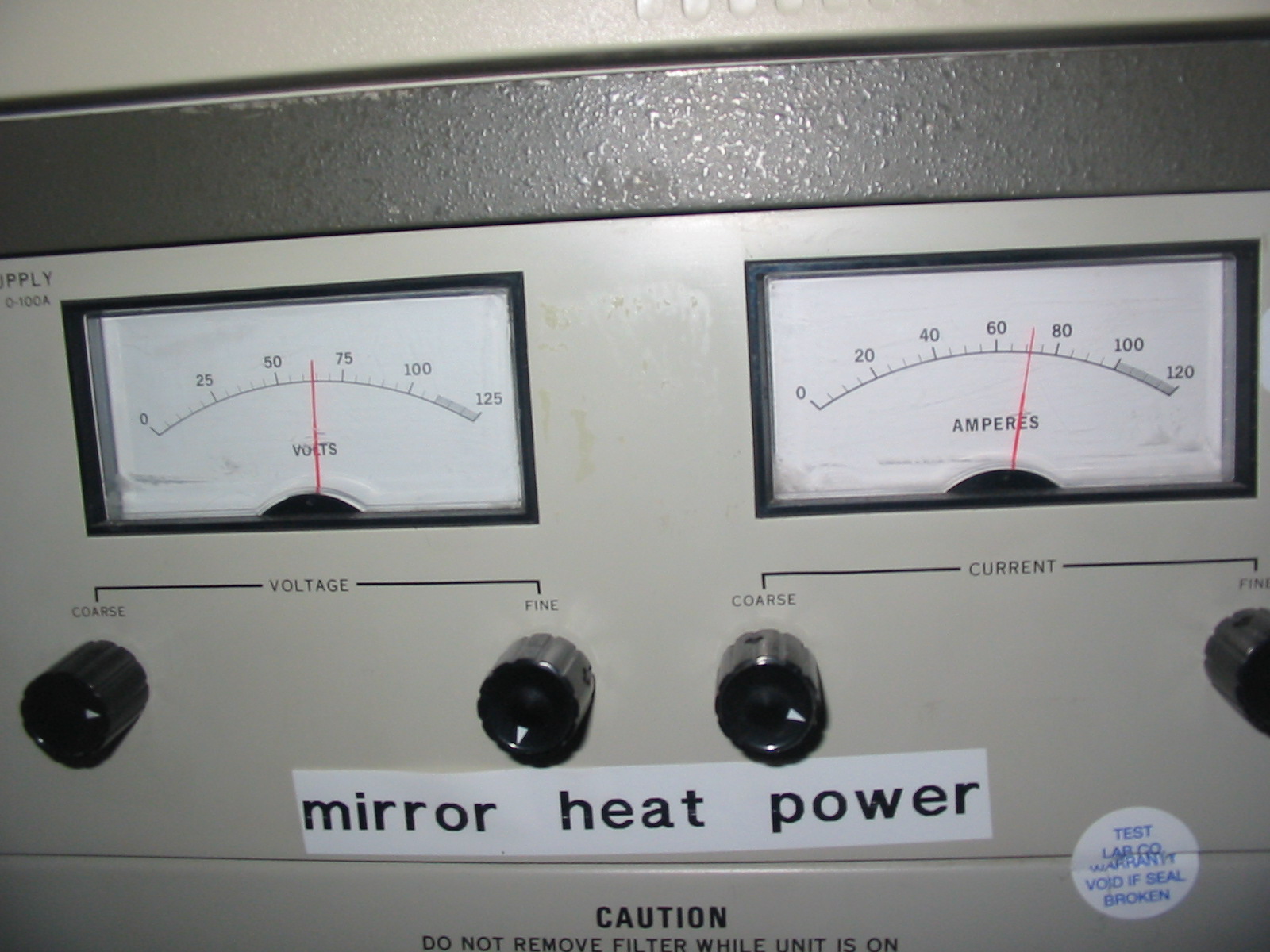Below are some of Paolo's replies to
the recommendations from Martin, Mark, and Giles that
were made on May 21st. These replies were collected on
May 22nd during an Irridium phone conversation.
Paolo notes that the AWG 4 cable is warm along its
entire length when carrying 70-80 Amps. but it is warm, not hot. This is
consistent with the 100 Amp current rating of this single AWG 4 cable.
One would expect it to get slightly warm when near its maximum
current carrying capacity. However, besides the general heating along
the entire length, the
temperature definitely increases
nearer
to the terminal block. This problem seems to have gotten better after
the tightening of the screws, as noted in Paolo's report of
May 20, but it has not gone away entirely. So Paolo (and Giles)
agree with Mark's assesment that there may be a problem with the
crimp lugs. The photo
below shows that there is little or
no discoloration. Paolo will jiggle on the crimp lugs to see if
they are broken or loose. We discussed the possibility that
Paolo could completely rebuild this part of the system - by cutting
the ends off the two awg 4 cables, and starting again with new
crimp lugs and using solder instead of a crimp tool to attach the
lugs. This cable has plenty of excess length.

Fig. 4
Note that in the (old) photo below
you can see that the mirror heater system power supply has
an adjustable current limit (two knobs - "fine" and "coarse").
Paolo has now set this current limit to 40 Amps.
Fig. 1
Recall the following discussion
from previous reports: "Paolo writes:
"... as you can see the cable is safe till 194 F (90
C)." According to Mark, the cable should be safe to 200 C.
He thinks that perhaps the "90C" that is printed on the cable
does not refer to temperature, but is some other sort of
specification." Well, as it turns out, the 90 C really
*is* a temperature specification:
Fig. 5
1) "Martin" heater PC
shutdown
Paolo has repeated the experiment of turning off the computer,
and has noted that in fact the green lights do *not* start to gradually
turn off. Instead, the main heater system continues to operate
normally, even though the mirror heating system goes to "all power
on" configuration.
...
- Giles



